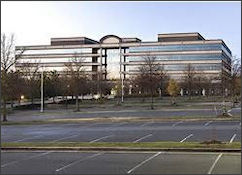Here’s a trend that ought to set government officials in larger suburban counties across Virginia on edge. U.S. businesses, declares the Wall Street Journal, have entered a new era of “corporate urbanism.” In a reverse of the post-World War II flight from the city to the suburbs, Motorola, United Continental Holdings, Hillshire Brands and other corporate giants are relocating their headquarters to urban centers or setting up high-profile satellite offices there.
“The showcase headquarters of the past, the beautiful suburban campuses — that’s a very obsolete model now,” Patrick Phillips, CEO of the Urban Land Institute, told the Journal.
The driving force: Corporations are going where the talent is, and Millennials with skills, talent and education increasingly prefer to live in urban centers. Plenty of corporations are staying put. The movement has not become a reverse exodus. But it seems clear which way things are moving. In the economic development game, the balance between city and suburbs has shifted.
Once upon a time, when the suburbs were new, they offered Americans an escape from the turmoil of inner cities with their crime, poverty, terrible schools and high taxes. But crime has declined dramatically; the fear factor is not driving people out of the central cities any more. Poverty is dispersing, too. While much of it remains concentrated in inner cities, poor people are being displaced by gentrification and they’re moving to the cheapest (because they’re the least desirable) neighborhoods in their regions, which tend to be the aging, ’50s- and ’60s-era neighborhoods in suburban counties. As poverty suburbanizes, it brings the social pathologies of poverty to suburban schools. Decades into the Post World War II suburban experiment, many ‘burbs have lost their disposable newness. Meanwhile, a generation of young people is discovering an appreciation for the authentic and walkable urbanism of the older cities.
Lesson to Virginia’s urban-core localities: Hang tough, things are going your way. Build on what you’ve got. Scrap those stupid suburban-inspired zoning codes you adopted in the ’70s and foster more walkable, bikeable urbanism. Don’t screw things up by raising taxes, your primary competitive disadvantage.
Lesson to Virginia’s suburban counties: Whether you recognize it or not, you have a big problem. Your traditional advantages are eroding. People like your lower taxes, but that’s not all they’re looking for. People do like your public schools, but the majority of new households being created are childless. You’ve got to reinvent yourselves.
— JAB




